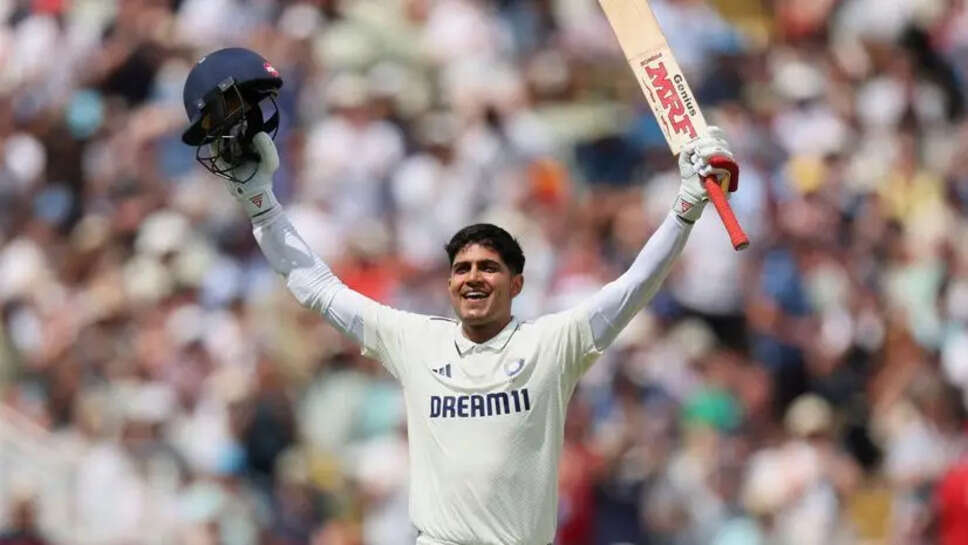Captain Gill’s Path to Perfection: Preparation, Patience, and Payoff

There’s elegance in the way Shubman Gill bats — a blend of grace, timing, and effortless strokeplay. But behind that poise is a relentless pursuit of perfection, one that was on full display during India’s recent Test series in England. As captain, Gill didn’t just lead with tactics and team talks; he led with the bat, putting in grueling hours before the series to fine-tune his game for English conditions — and his preparation paid off in resounding fashion.
Facing the swinging Dukes ball, gloomy skies, and tricky English pitches is never easy — especially for a subcontinental batter. Yet, Gill stood tall amidst the challenge, producing a series-defining performance that reflected not just class, but character. His knock wasn’t just about runs — it was about proving that hard work, adaptation, and focus still define success at the highest level of the game.
The Build-Up: Addressing a Criticism
Shubman Gill’s talent has never been in question. From his U19 World Cup heroics to establishing himself in India’s top order, the Punjab batter has been hailed as the future of Indian cricket. But there were whispers — fair or not — about his ability to deliver big scores consistently, especially away from home.
His past tours to England had been modest, with a few starts that never quite turned into defining knocks. With India banking on him to lead the batting unit — and now as Test captain — Gill knew this series was more than just another outing. It was a test of his evolution, both as a batsman and as a leader.
Determined to change the narrative, Gill began his preparation months in advance. Those close to the team reveal that he had a clear plan: tackle the moving ball head-on, tighten his technique, and mentally condition himself for long innings under overcast skies.
Hours in the Nets, Days of Planning
Gill’s preparation wasn’t just physical — it was intellectual. He spent hours analyzing footage from previous English tours — not just of himself but of players like Rahul Dravid, Cheteshwar Pujara, Joe Root, and even Alastair Cook. What they did right in England, he wanted to emulate. What he did wrong previously, he was determined not to repeat.
In the nets, he focused specifically on playing late — an essential skill in England where the ball seams and swings much more after pitching. Coaches report that he trained under simulation conditions with the Dukes ball, even having bowlers replicate specific deliveries that had troubled him in the past.
Importantly, he worked closely with India's batting consultant on his back-and-across trigger movement. The goal was to avoid poking at deliveries outside off while still being ready to drive when the ball was in his arc. The mental note was clear: respect the conditions, wait for the bad ball, and build the innings one session at a time.
The Knock: Calm in Chaos
When the Test finally began, England’s bowlers came hard. Overcast skies, a greenish pitch, and a fired-up new-ball attack had India on the back foot early. But Gill walked in with a sense of calm — not born out of arrogance, but from preparation.
He left judiciously outside off, refused to flash at wide deliveries, and got behind the line on anything full. His shot selection was precise, with most of his runs early coming in singles and twos, rotating strike and frustrating the bowlers. As the ball aged and conditions eased, Gill opened up — unleashing his signature cover drives, flicks through midwicket, and even a couple of controlled upper-cuts.
What stood out was his ability to accelerate without taking undue risks. There was a clear contrast between the Gill of old — eager to dominate from ball one — and the Gill of this Test: patient, composed, and ruthlessly efficient.
He reached his century with a straight drive off a full delivery — a shot symbolic of his technical adjustments. Bat held high, helmet raised, and a quiet nod — it was a celebration without fanfare, but rich in meaning.
Leading by Example
Beyond the runs, Gill’s innings was a message to the dressing room. In challenging foreign conditions, he showed that discipline and process mattered as much as flair. Young batters in the squad, including Yashasvi Jaiswal and Sarfaraz Khan, looked up to him not just as a captain but as a role model.
He was constantly in conversation with bowlers about field placements, rotated spinners intelligently, and managed workload among pacers with maturity. But perhaps his most important contribution was showing that a leader doesn’t need to shout — sometimes, a solid 150 in tough conditions says everything.
The Mental Edge
What made Gill’s performance more impressive was the mental clarity he displayed. Former players have often said the biggest challenge in England is not the conditions but the mind. One bad session, one reckless shot, or one cloudy hour can undo everything.
Gill handled this brilliantly. During long periods of tight bowling, he resisted the urge to break free with big shots. In fact, there was a moment during the first innings when he went 35 balls without scoring a boundary — yet he never looked rushed or rattled.
This mental strength, combined with technical fine-tuning, suggests that Gill isn’t just an elegant batsman anymore. He is now a complete Test cricketer — and a leader forged in fire.
The Verdict: A Captain Comes of Age
Shubman Gill’s century in England isn’t just another mark on the scoresheet — it’s a turning point. It showed that India’s young captain is willing to do the hard yards, evolve his game, and rise to the moment when it matters most.
While the future holds many more challenges — in Australia, South Africa, or at home — this performance will remain a benchmark of what Gill is capable of. His bat, once just a symbol of talent, is now a tool of leadership and resilience.
Gill’s story isn’t just about a brilliant innings in England. It’s about self-belief, adaptability, and the hunger to grow. In a cricketing world obsessed with speed and spectacle, Shubman Gill’s quiet grind and pursuit of perfection may just be the most important innings of all.
